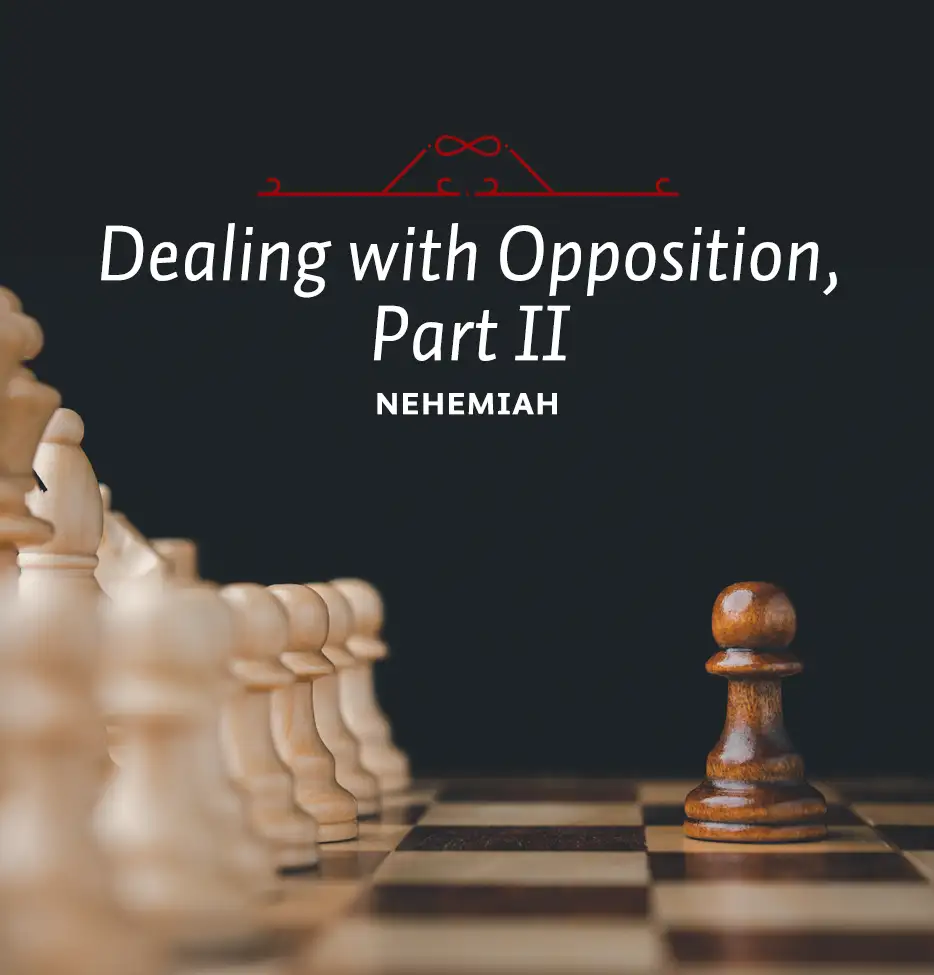I am indebted to Frank R. Tillapaugh for some important thoughts at this point, based on the fact that in order to have a public meeting Nehemiah must have pulled his workers off the wall. In normal circumstances this would not have been remarkable. But these were not normal circumstances. Nehemiah’s one goal was to build the wall, and to build it quickly before the effort could be stopped by Israel’s enemies. He had everyone working.
Yet now Nehemiah stops the work and holds a public meeting. Why was this? Tillapaugh says that it was because the situation had changed. There was a problem within now, and it was of such overriding importance that it was necessary to deal with it immediately. “What good was it to build the wall,” asked Tillapaugh, “if inside the wall there were people who were exploiting one another?”1
We must ask that question again today, and we must ask it of ourselves. What good is it to build great evangelical institutions, constructing walls against the “evil” of our opposing, secular world, if within the walls the so-called “people of God” are indistinguishable from those without? What good is it to preserve a separate “Christian” identity if Christians behave like unbelievers?
To put it in sharp terms, we need to stop calling the world to repent until we repent ourselves. Of what should we repent? There are scores of things, but a thoughtful consideration of this chapter alone suggests two of them.
1. Disobedience to the revealed law of God. The nobles of Nehemiah’s day were disobeying the teachings of Exodus, Leviticus and Deuteronomy. Why is it that so many within the evangelical church take the revealed law of God so casually? It is no surprise that the world does this. The world does not receive the Bible as God’s book. But we do. We maintain even that it is inerrant “in the whole and in its parts.” How then can we take it so lightly? How can we say, as I have heard many so-called evangelicals say, “But that specific teaching was for that day, not today”? Or, “Well, we have to be realistic. Life just doesn’t fit those clear-cut categories”? We play loose with the Scriptures, and we need to repent of it. We need to become people of the Book—in fact, and not just in our profession.
2. Putting our personal prosperity before other people’s well-being. That is what these nobles were doing. They were enriching themselves at the expense of poor people. May I suggest that the evangelical church has been doing that too—or at least enriching itself while disregarding its poorer members? The only times in history in which the church has been really godly and really strong have been times when it was out rubbing shoulders with the poor and helping them. But most of us do not even know the poor. We will give contributions to help them, sometimes if we are not asked for too much. But we are not a church of the poor. We are not even a church of the masses. We need to repent of our elitist dispositions.
1From a series of tapes by Frank R. Tillapaugh entitled “Reclaiming the Church for Ministry” (Denver: Bear Valley Ministries, 1984).






